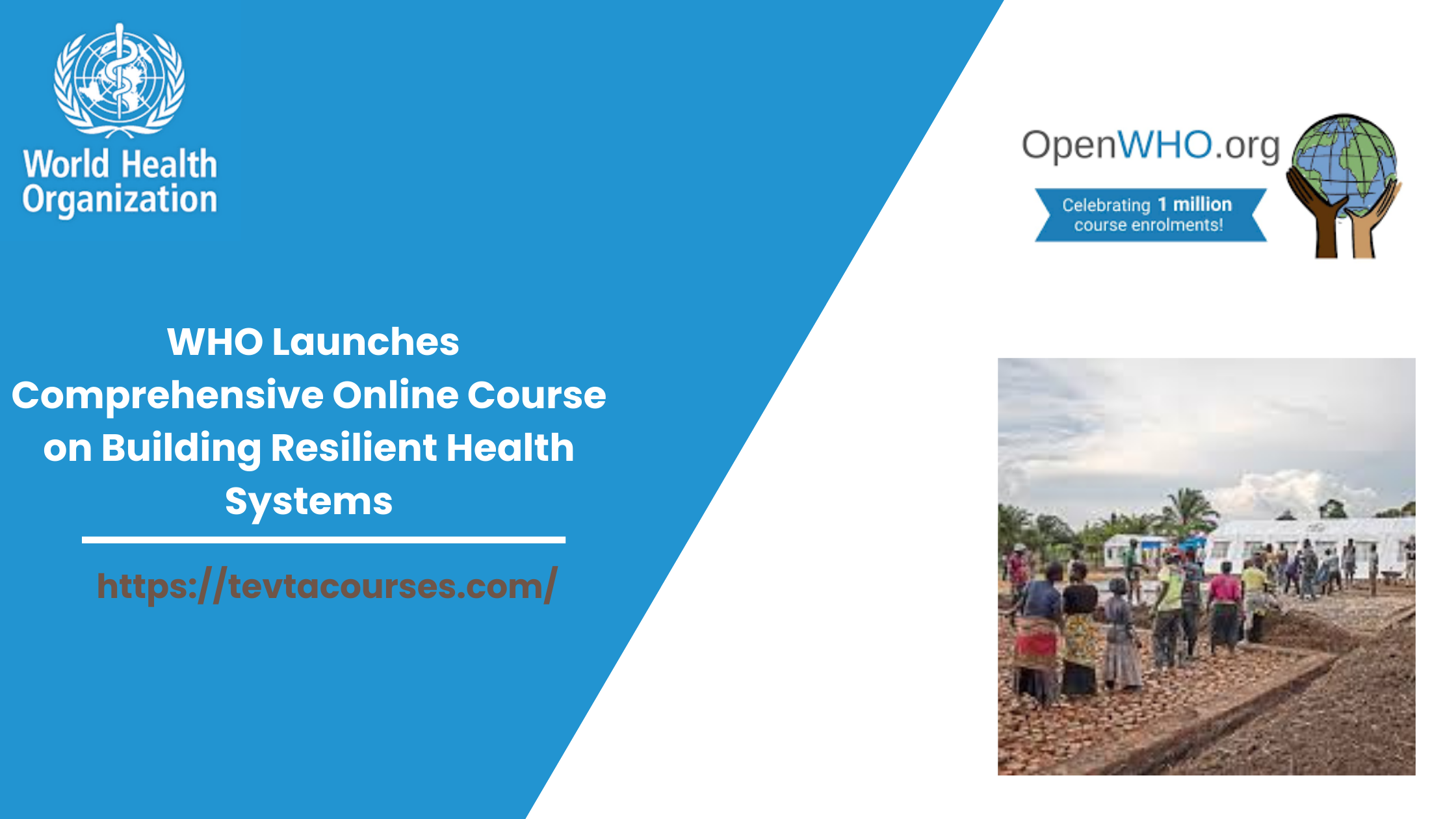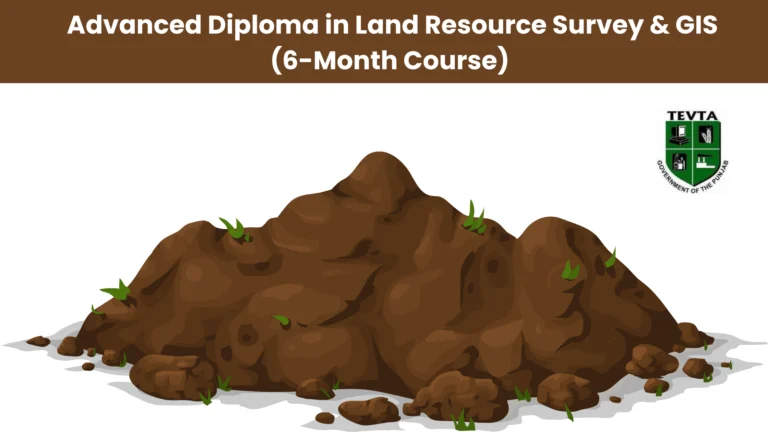WHO Launches Comprehensive Online Course on Building Resilient Health Systems
WHO Free Online Courses are open to people worldwide. The courses are completely free and there are no registration charges, get a free certificate at the end of the course. The online courses are offered in English language. Anyone from any country and region of the world can access the WHO Online Course on Building Resilient Health Systems 2025.
The courses are based on 4 Modules: Basic, Intermediate, and advanced. These online courses are offered by the World Health Organization in order to improve health emergency response. The OpenWHO’s course covers both acute shocks, such as infectious disease outbreaks and environmental disasters, as well as chronic stresses, such as noncommunicable diseases and antimicrobial resistance.
Details WHO Launches Comprehensive Online Course on Building Resilient Health Systems
| Attribute | Details |
|---|---|
| Course Duration | 5 weeks |
| Learners Enrolled | 6,939 |
| Language | English |
| Access Mode | Online |
Also see: Ignite Your Passion for Learning with Monash University Online Courses
What Is a Resilient Health System?
COVID-19 showed the world that fundamental change in health systems cannot wait; countries need health systems that are resilient to shocks while continuing essential health services. But what is a resilient health system? Resilient health systems are aware of threats, agile in response to evolving needs, absorptive to contain shocks, adaptive to minimize disruptions, and transformative based on lessons learned.
Resilient health systems go beyond the health sector and mitigate other challenges such as aging populations, chronic disease burdens, and climate change. To boost health system resilience, countries need to invest in stronger public health institutions, improve early warning functions, expand the community health workforce, and strengthen community engagement.
Countries must prioritize equity and investments that strengthen public health functions, focus on pandemic preparedness and prevention, and primary health care. Let’s work together to make health systems more resilient to better protect and invest in people.
Also see: WHO Free Online Course Free Certificate
Online Course on Building Resilient Health Systems Overview
WHO strongly emphasizes the need for a renewed focus on building resilience by addressing critical vulnerabilities within health systems. Whether it is before, during, or after a traumatic event. Because of the COVID-19 pandemic, health systems around the world are under constant pressure from a range of public health threats, both acute and chronic.
These challenges have adversely affected the delivery of essential health services and may further hamper the achievement of universal health coverage (UHC) and health protection goals. That is why WHO is offering some new courses.
These courses are targeted at decision-makers in public health policy, and health service managers at the national, district, and community levels. It promotes an integrated approach and initiatives to enhance health system resilience in policy-making, planning, monitoring, and delivery of services and evaluation.
Course structure and certification
The Online Course on Building Resilient Health Systems, which takes approximately five hours to complete, is divided into four modules:
- Introduction to health systems resilience covers the definition, importance, and key attributes of health systems resilience;
- Building health system resilience before shock events focuses on governance, intersectoral coordination, and continuity planning;
- Health systems resilience during shock events discusses maintaining essential health services and integrating resilience into incident management systems; and
- Health systems recovery and building resilience outlines steps for recovery and the importance of post-event evaluations.
Each module consists of short learning sessions consisting of exercises, case scenarios, discussion points and quizzes. Participants who score at least 80% will receive a Record of Achievement Certificate, while those who complete 80% of the course content will receive a Certificate of Attendance. Additionally, a digital open badge is available for those who have achieved a record of success.
Since the offline course content was adapted for virtual learning and published on OpenWHO in 2022, there have been 6870 entries – a testament to the growing need for WHO support in this area.
The UHC Partnership and Korea International Cooperation Agency, the United States Agency for International Development, are supporting this dedicated training package as part of WHO’s program to work on health system resilience and essential functions of public health. including the support of other partners. (USAID), the Public Health Agency of Canada (PHAC), and the UK’s Foreign, Commonwealth and Development Office (FCDO).
What you’ll learn?
By the end of the course, applicants will be able to:
- Incorporate flexibility features into health policies and plans.
- Apply integrated approaches to building resilience in health systems.
- Advocate for implementation of key flexibility requirements.
For better information and to enroll in the course, visit the course webpage.







